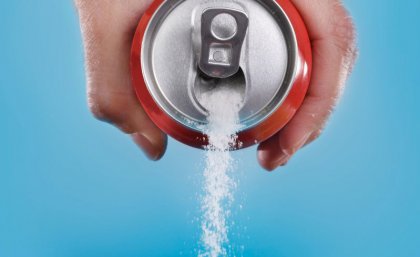
A 20 per cent tax on sugar-sweetened drinks would result in widespread, long-lasting public health benefits and significant health cost savings, a new study shows.
University of Queensland School of Public Health researcher Dr Lennert Veerman said such a tax would raise an estimated $400 million a year and reduce annual health expenditure by up to $29 million.
“Our modelling scoped the effects over the lifetime of adult Australians alive in 2010,” Dr Veerman said.
“We found there would be 800 fewer new Type 2 diabetes cases each year once the tax was introduced.
“After 25 years, about 1600 fewer deaths would have occurred, with heart disease accounting for the largest share of this postponed mortality,” he said.
“There would be 4400 fewer people with heart disease at that time and 1100 fewer people living with the consequences of stroke.”
“In effect, Australians would enjoy about 170,000 healthy life years that they would not have otherwise.”
The study defined a sugar-sweetened beverage (SSB) as a non-alcoholic drink with added sugar, including carbonated soft drinks and flavoured mineral waters. Fruit juices, fruit drinks, energy drinks, milk-based drinks and cordials were excluded.
Dr Veerman said overall health care cost savings would rise over the first 20 years of the tax and then stabilise at about $29 million a year.
Previous studies showed that a 20 per cent tax (based on product price rather than on the amount of sugar in the product) could reduce total energy consumption by about 10,000 kJ per person per year, cutting body weight by 0.93 kg and costing household an average of $17.
“Policymakers have cited limited available evidence as a barrier to policy progress in the area of taxes on unhealthy foods, so we expect the detail in our study will be useful to them,” Dr Veerman said.
UQ worked on the study with the World Health Organization Collaborating Centre for Obesity Prevention at Deakin University, and Victoria’s Obesity Policy Coalition.
Obesity Policy Coalition Executive Manager and study co-author Ms Jane Martin said sugary drinks were the largest source of added sugar in Australian children's diets.
“With one in four children and 67 per cent of adults now overweight or obese, we need decisive action by government to address the growing health burden of overweight and obesity in this country," Ms Martin said.
"Australian research has shown that two-thirds of respondents (65 per cent) were in favour of a tax on soft drinks if the money was used to reduce the cost of healthy food."
The cost to government of implementing the tax was estimated at $27.6 million, but Dr Veerman said reduced health care expenditure would pay back the cost of legislation and monitoring the tax more than 14 times.
Dr Veerman said research in the UK had found that a 20 per cent sugar-sweetened beverage tax there would lead to a 1.3 per cent reduction in the prevalence of obesity, or about 180,000 fewer people in that category. Research from the US indicated similar results.
“The greatest effects are likely to be seen in young people, who are the highest sugary drinks consumers.”
He said Australians in lower socio-economic groups were disproportionately affected by diet-related illnesses and were likely to experience greater dietary improvements as a result of a sugary drinks tax.
“A sugary drinks tax is not currently on the political agenda in Australia, but this study and international experience suggest it should be considered as part of any tax reform process.”
The research is published today in PLOS ONE.
Contact: Dr Lennert Veerman, l.veerman@uq.edu.au, +61 7 3365 5367; Fiona Cameron, UQ Communications, f.cameron2@uq.edu.au, +61 7 3346 7086.



